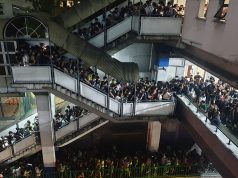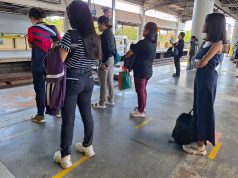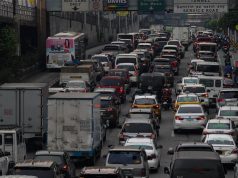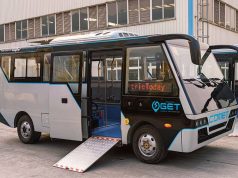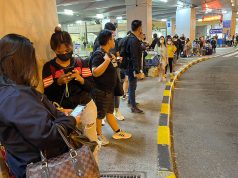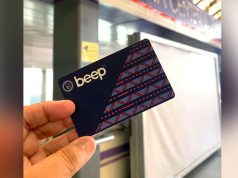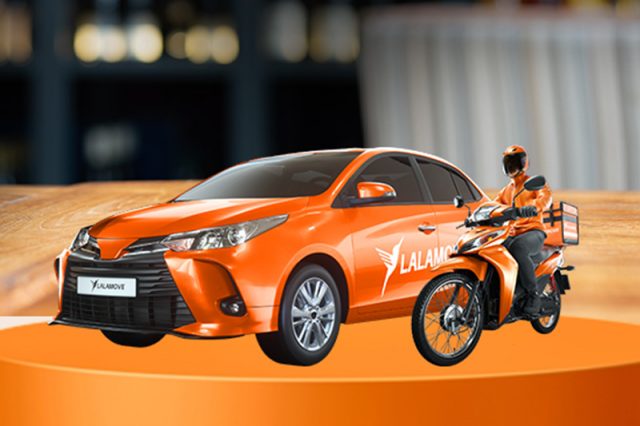
A delivery service reminded users it is not licensed to transport people following online posts of Filipinos using its service to commute.
Lalamove Philippines on Tuesday e-mailed patrons about its policy against transporting humans and other living beings, saying that it is “not licensed” to allow such activities.
“Please be informed that our accredited delivery vehicles are not licensed to transport people, only items for delivery,” its message reads.
“Our Lalamove Bossings have the right to refuse since this is illegal and is not allowed on our platform,” the delivery service added, referring to its riders.
“Let us help each other by allowing our partner drivers to focus on fulfilling your Christmas rush deliveries,” it further said.
Carmela Fonbuena, executive director of the Philippine Center for Investigative Journalism, also shared the reminder on Twitter.
“In Metro Manila, where public transport [transportation] is among [the] worst in the world, hellish during the holidays, desperate commuters are booking themselves as ‘packages’ to book rides. Lalamove had to issue this reminder today,” she wrote.
Diskarte! Lalamove is licensed to transport packages, not people. In Metro Manila, where public transpo is among worst in the world, hellish during the holidays, desperate commuters are booking themselves as "packages" to book rides.
Lalamove had to issue this reminder today. pic.twitter.com/bu5GDXrA2W
— Carmela Fonbuena (@carmelafonbuena) December 20, 2022
Lalamove also shared a link detailing its delivery guidelines in its e-mail.
“Generally, there are two things Lalamove cannot deliver: breathing or living things, and illegal or hazardous items,” it said in its message.
Breathing or living things include people, fish seedlings and pets or animals.
“As an on-demand delivery app, we dedicate ourselves to making it easy to deliver items, which excludes living things. So the answer to the question ‘Can a person ride a Lalamove vehicle?'” is a no. Lalamove cannot deliver pets and other living creatures,” the service said.
ALSO READ: Lalamove reminds furparents against booking service to deliver pets
Other prohibited items are dangerous drugs, firearms, sharp objects, chemicals, unsecured flammable objects, jewelry and alcoholic drinks in cases of liquor ban.
Lalamove said its guidelines are applicable to all types of its delivery vehicles — motorcycles, MPV (multi-purpose vehicles), light trucks and delivery vans.
“Our team and Partner Drivers strictly implement this, and we expect our customers to follow as well. If the item you want to deliver isn’t on this list, then you can try our courier service!” it added.
The reminder came after social media users suggested fellow Pinoys use the delivery service for their commute if they have no other public transport options left.
“Saan [na ba] mga biker, sa Lalamove na nag-book,” a Facebook user said, attaching a screenshot of the Lalamove homepage.
“Couldn’t book a ride so I booked a Lalamove. Sir, ako po mismo ‘yung cargo. This way up, handle with care, fragile, perishable goods, po,” a Pinoy from Twitter said.
“To all who wish to book the crappy services Grab, Angkas at Joyride, book Lalamove instead, hahaha proven and tested!” another Twitter user wrote.
This strategy was used as commuters faced difficulties in booking ride-hailing apps amid the Holiday rush.
Others shared stories of taxi drivers taking advantage of the traffic situation and charging high fares to potential passengers without using their meters.
Those using public utility vehicles also encounter snake-like queues and long waiting periods in their commutes.
ALSO READ: Convenience comes with a price: Commuters face difficulty in booking rides amid Christmas rush
Last November, a think tank ranked Manila among the cities with the worst public transport system in the world.
“Road transport faces challenges including the poor quality of roads in the metropolitan area and the limited regional connectivity provided by the national road network. Manila is congested and polluted, but a low level of car ownership should help prevent these problems from worsening,” it said before.
“Several modes of transportation are available in Manila, including jeepneys and some metro lines. Linkages to active mobility are provided by permissive transit rules towards bikes, as well as significant cycling infrastructure. Despite these multimodal strengths, Manila’s public transit system has room for improvement in speed, wait times, station density and affordability,” it added.




